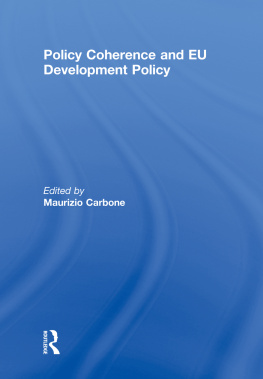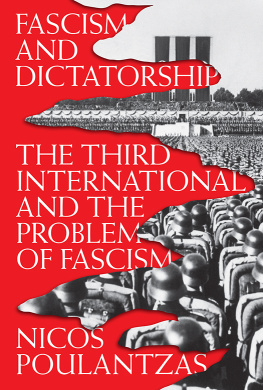Maurizio Lazzarato - Capital Hates Everyone: Fascism or Revolution
Here you can read online Maurizio Lazzarato - Capital Hates Everyone: Fascism or Revolution full text of the book (entire story) in english for free. Download pdf and epub, get meaning, cover and reviews about this ebook. year: 2021, publisher: MIT Press, genre: Politics. Description of the work, (preface) as well as reviews are available. Best literature library LitArk.com created for fans of good reading and offers a wide selection of genres:
Romance novel
Science fiction
Adventure
Detective
Science
History
Home and family
Prose
Art
Politics
Computer
Non-fiction
Religion
Business
Children
Humor
Choose a favorite category and find really read worthwhile books. Enjoy immersion in the world of imagination, feel the emotions of the characters or learn something new for yourself, make an fascinating discovery.

- Book:Capital Hates Everyone: Fascism or Revolution
- Author:
- Publisher:MIT Press
- Genre:
- Year:2021
- Rating:5 / 5
- Favourites:Add to favourites
- Your mark:
- 100
- 1
- 2
- 3
- 4
- 5
Capital Hates Everyone: Fascism or Revolution: summary, description and annotation
We offer to read an annotation, description, summary or preface (depends on what the author of the book "Capital Hates Everyone: Fascism or Revolution" wrote himself). If you haven't found the necessary information about the book — write in the comments, we will try to find it.
Capital Hates Everyone: Fascism or Revolution — read online for free the complete book (whole text) full work
Below is the text of the book, divided by pages. System saving the place of the last page read, allows you to conveniently read the book "Capital Hates Everyone: Fascism or Revolution" online for free, without having to search again every time where you left off. Put a bookmark, and you can go to the page where you finished reading at any time.
Font size:
Interval:
Bookmark:

SEMIOTEXT(E) INTERVENTION SERIES
Maurizio Lazzarato, 2021. Originally published in French by ditions Amsterdam.
All rights reserved. No part of this book may be reproduced, stored in a retrieval system, or transmitted by any means, electronic, mechanical, photocopying, recording, or otherwise, without prior permission of the publisher.
Published by Semiotext(e)
PO BOX 629, South Pasadena, CA 91031
www.semiotexte.com
Design: Hedi El Kholti
ISBN: 978-1-63590-138-2
Distributed by the MIT Press, Cambridge, Mass., and London, England
d_r0
Apocalyptic Times
Without thought going to the limit, no strategy, thus no tactic, thus no action, thus no real thinking or initiative, thus no writing, no music, no painting, no sculpture, etc., are possible.
Louis Althusser
We are living in apocalyptic times, in the literal sense of the wordtimes that manifest, times that reveal. What they show, firstly, is that the financial collapse of 2008 initiated a period of political ruptures. The alternative fascism or revolution is asymmetrical, out of balance, because we are already inside a seemingly irresistible series of political ruptures created by neo-fascist, sexist, racist forces; because for the moment, the revolutionary rupture is just a hypothesis, dictated by the necessity of reintroducing what neoliberalism has succeeded in erasing from the memory, the action, and the theory of the forces combating capitalism. This is even its most important victory.
This is not only false from a factual standpoint, it is also problematic for understanding capital and the exercise of its power. By erasing the violence that founded neoliberalism, incarnated by the bloody dictatorships of South America, one commits a double, political and theoretical, error: one concentrates only on the violence that preserves the economy, the institutions, law, and governmentalitytested out for the first time in Pinochet's Chileand so one presents capital as an agent of modernization, as a power of innovation; moreover, one erases the world revolution and its defeat, which however are the origin and cause of globalization as the global response of capital.
The conception of power that results from this is pacified: action upon action, government upon behaviors (Foucault) and not action upon persons (of which war and civil war are the peak expressions). Power would be incorporated into impersonal apparatuses that exert a soft violence in an automatic way. Quite to the contrary, however, the logic of civil war that is at the foundation of neoliberalism was not absorbed, erased, replaced by the functioning of the economy, law, and democracy.
The apocalyptic times show us that the new fascisms are in the process of reactivating although no communism is threatening capitalism and propertythe relationship between war and governmentality. We are living in a period of blurring, of hybridization of the State of law and the state of exception. The hegemony of neofascism must not be measured simply by the strength of its organizations, but also by the capacity it has to bleed into the State and the political and media system.
The apocalyptic times also manifest the strength and weaknesses of the political movements which, since 2011, have tried to contest the supreme power of capital. This book was completed during the Yellow Vests uprising. Adopting the viewpoint of world revolution in order to read such a movement (but also the different Arab Springs, Occupy Wall Street in the U.S., the M15 in Spain, the days of June 2013 in Brazil, etc.) might seem pretentious or fantastical. And yet thinking at the limit means starting again not only from the historical defeat suffered in the 1960s by world revolution, but also from the unrealized possibilities which were created by and included revolutions, differently in the North and in the South, and which are still timidly mobilized in contemporary movements.
The form of the revolutionary process had already changed in the 1960s, but it had come up against an insurmountable obstacle: the inability to invent a different model from the one that, in 1917, had begun the long string of 20th century revolutions. In the Leninist model, revolution still had the form of realization. The working class was the subject that already contained the conditions of the abolition of capitalism and the installation of communism. The passage from class in itself to class for itself needed to be realized through the prise de conscience and the seizure of power, organized and led by the party that brought in from the outside what was lacking in the tradeunion practices of the workers.
Since the 1960s, however, the revolutionary process has taken the form of the event: political subjects, instead of being already there in the making, are unforeseen (the Yellow Vests are a paradigmatic example of this unforeseeability); they don't embody history's necessity, but only the contingency of political confrontation. Their constitution, their coming-to-consciousness, their program, their organization are formed on the basis of a refusal (to be governed), a rupture, a radical here and now that aren't satisfied with any promise of democracy and justice to come.
To be sure, with all due respect to Rancire, the uprising has its reasons and its causes. The Yellow Vests are more intelligent than the philosopher, because they have understood that the relationship between production and circulation has been reversed. Circulation, the circulation of money, commodities, human beings, and information now takes precedence over production. They no longer occupy the factories, but the roundabouts, and attack the circulation of information (the circulation of currency being more abstract, targeting it requires another level of organization and action).
The precondition for the emergence of the political process is obviously a rupture with the reasons and causes that generated it. Only the interruption of the existing order, only the exit from governmentality will be able to open up a new political process, because the governed, even when they resist, are power's double, its correlates, its opposite numbers. Rupture with the time of domination, by creating new possibilities, unimaginable before their appearance, establishes the conditions for the transformation of self and the world. But no mystique of the riot, no idealism of the uprising is called for.
The processes of constitution of the political subject, the forms of organization, the development of capabilities for the struggle, made possible by an interruption of the time of power, are immediately confronted with the reasons of profit, property, and patrimony which the uprising has not caused to disappear. On the contrary, they are more aggressive, they immediately invoke the reestablishment of order, placing the police at the forefront, while continuing, as if nothing had happened, the promulgation of reforms. Here the alternatives are radical: either the new political process manages to change capital's reasons, or those same reasons will change it. The opening up of political possibilities is confronted with the reality of a formidable double problem, that of the constitution of a political subject and that of the power of capital, because the former can only take place within the latter.
The responses given to these questions by the Arab Springs, Occupy Wall Street, the days of June 2013 in Brazil, etc., are very weak; the movements continue to experiment without finding real strategies. These impasses cannot in any way be overcome by the left populism practiced by Podemos in Spain. Its strategy realizes the liquidation of the revolution begun in the aftermath of 68 by many Marxists whose Marxism had failed. Democracy as the locus of conflicts and subjectification replaces capitalism-and-revolution (Lefort, Laclau, Rancire), at the very moment when capital's machine is literally swallowing up democratic representation. Claude Lefort's assertion, in democracy, the place of power is empty is contradicted as early as the start of the 1970s: that place is occupied by the
Font size:
Interval:
Bookmark:
Similar books «Capital Hates Everyone: Fascism or Revolution»
Look at similar books to Capital Hates Everyone: Fascism or Revolution. We have selected literature similar in name and meaning in the hope of providing readers with more options to find new, interesting, not yet read works.
Discussion, reviews of the book Capital Hates Everyone: Fascism or Revolution and just readers' own opinions. Leave your comments, write what you think about the work, its meaning or the main characters. Specify what exactly you liked and what you didn't like, and why you think so.











